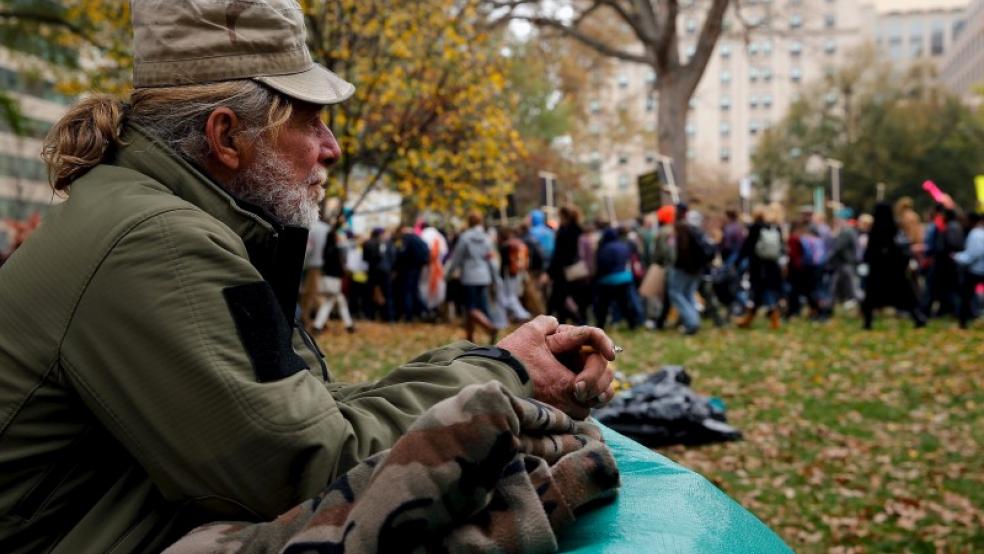(Reuters) - More than 500,000 people - a quarter of them children - were homeless in the United States this year amid scarce affordable housing across much of the nation, according to a study released on Thursday.
The report, from the U.S. Department of Housing and Urban Development (HUD), said the number was down slightly from 2014. Many U.S. cities are confronting a sluggish economic recovery, stagnant or falling wages among the lowest-income earners and budget constraints for social welfare programs.Los Angeles, Seattle, Portland, Oregon and Hawaii have all recently declared emergencies over the rise of homelessness, and on Thursday Seattle's mayor toured a new encampment for his city's dispossessed. "Despite national estimates, New York City continues to experience near record homelessness," said Giselle Routhier, a spokeswoman for the Coalition for the Homeless, an advocacy group.According to HUD's latest tally, nearly 565,000 people were living on the streets in cars, in homeless shelters or in subsidized transitional housing during a one-night national survey in January. Nearly one-fourth were aged 18 or under.That number was down 2 percent from the previous year's count and 11 percent from 2007, HUD said. The actual U.S. homeless population is likely higher than HUD's snapshot suggests because many people living without the means to put a roof over their heads are beyond the reach of the survey, sleeping on a friend's couch or a relative's basement.HUD reported separately this month that roughly 1.49 million individuals used a shelter in 2014, up 4.6 percent from 2013, agency spokeswoman Heather Fluit said. Even as homelessness has waned nationally, 17 states posted increases, including the two most populous - New York and California, up nearly 10 percent and 1.6 percent, respectively, from last year.Thirty-three states and the District of Columbia recorded declines, with the biggest drops found in Florida, Texas, Georgia, Michigan and New Jersey."I am glad it's trending downward, but a 2 percent change (nationally) is pretty much flat," said Nan Roman, president of the National Alliance to End Homelessness, in Washington.A lack of affordable housing, combined with slumping pay at the lower end of the U.S. wage scale, has been cited by analysts as a driver of homelessness in a number of U.S. cities."We are 7 million units short of affordable housing for low-income people – that's a big gap," Roman said. (Reporting by Eric M. Johnson in Seattle; Editing by Steve Gorman and Sandra Maler)More than 500,000 people homeless in the United States: report

JONATHAN ERNST



